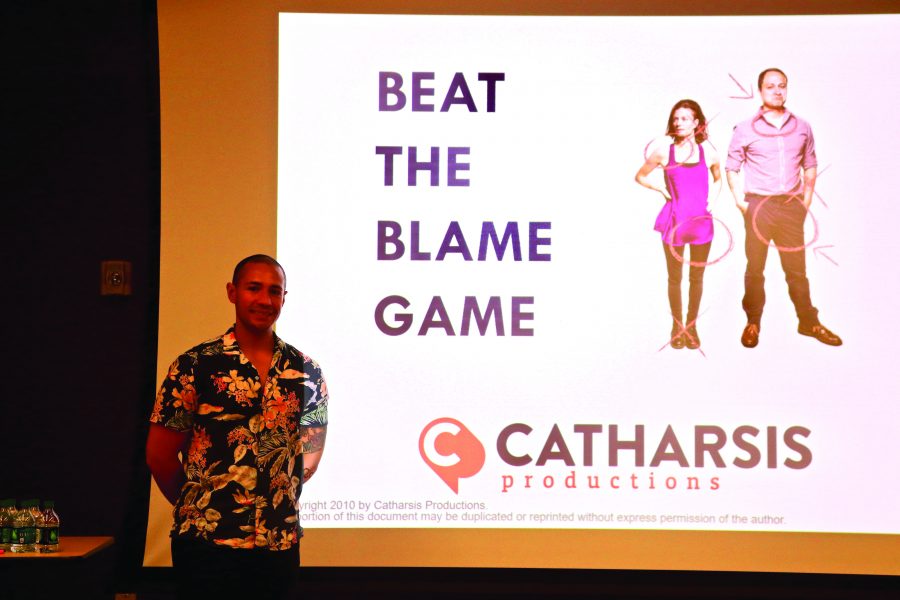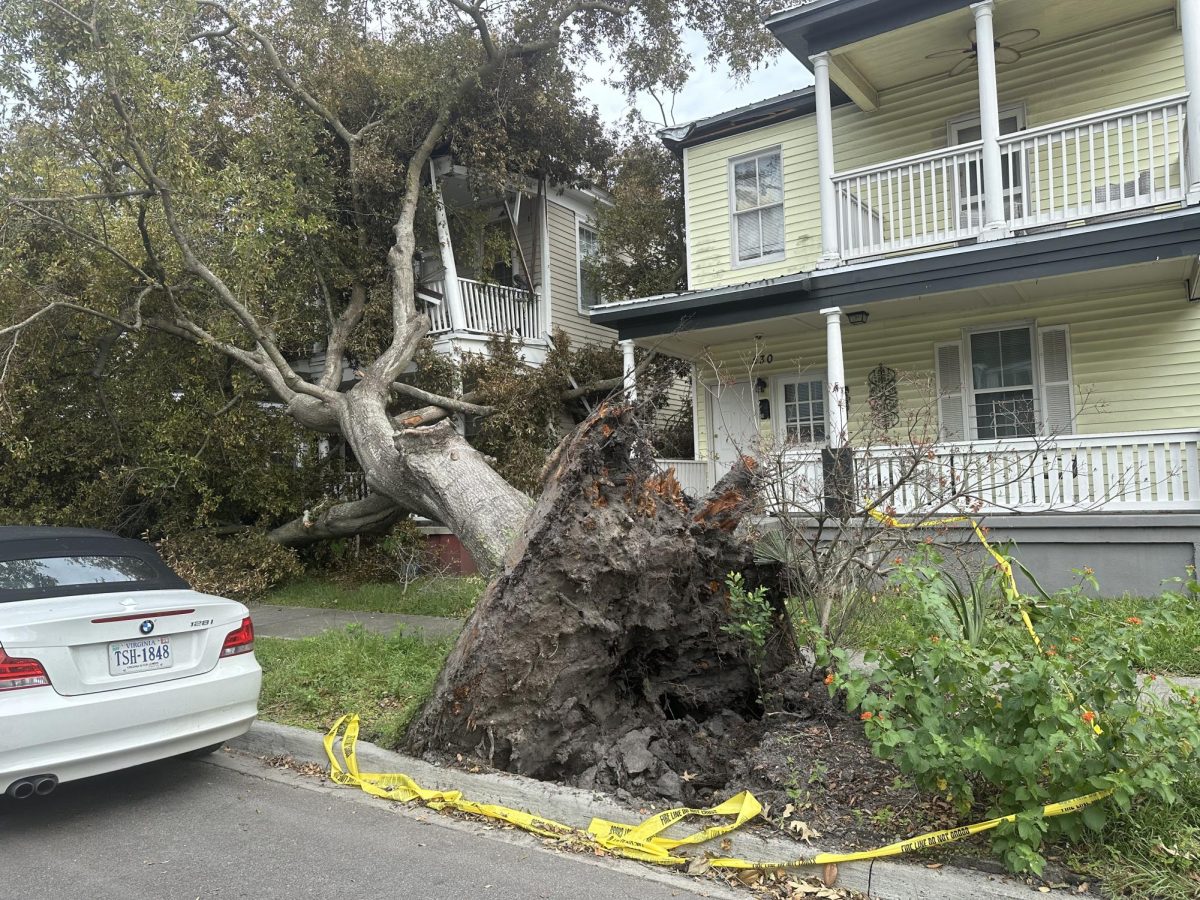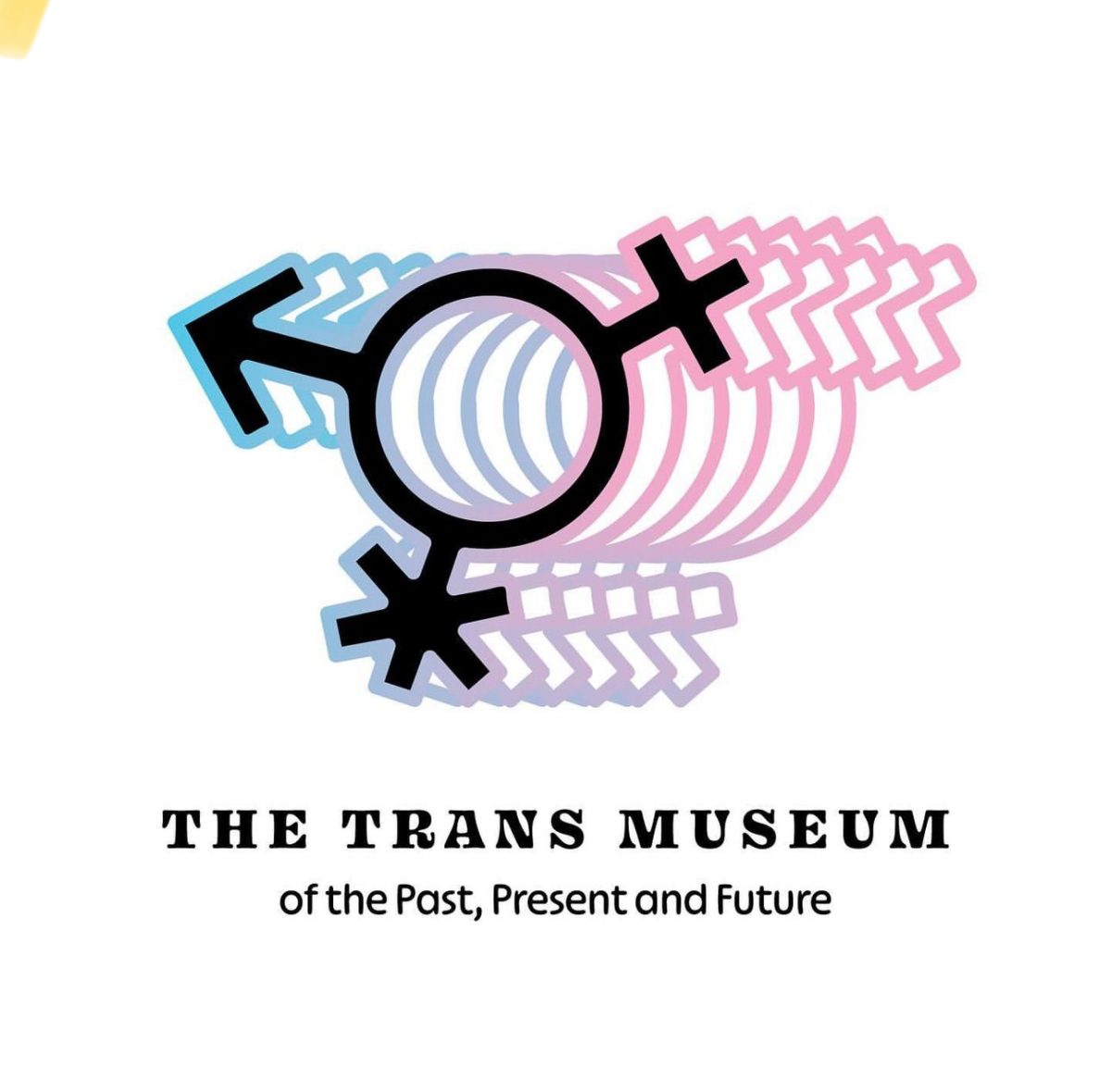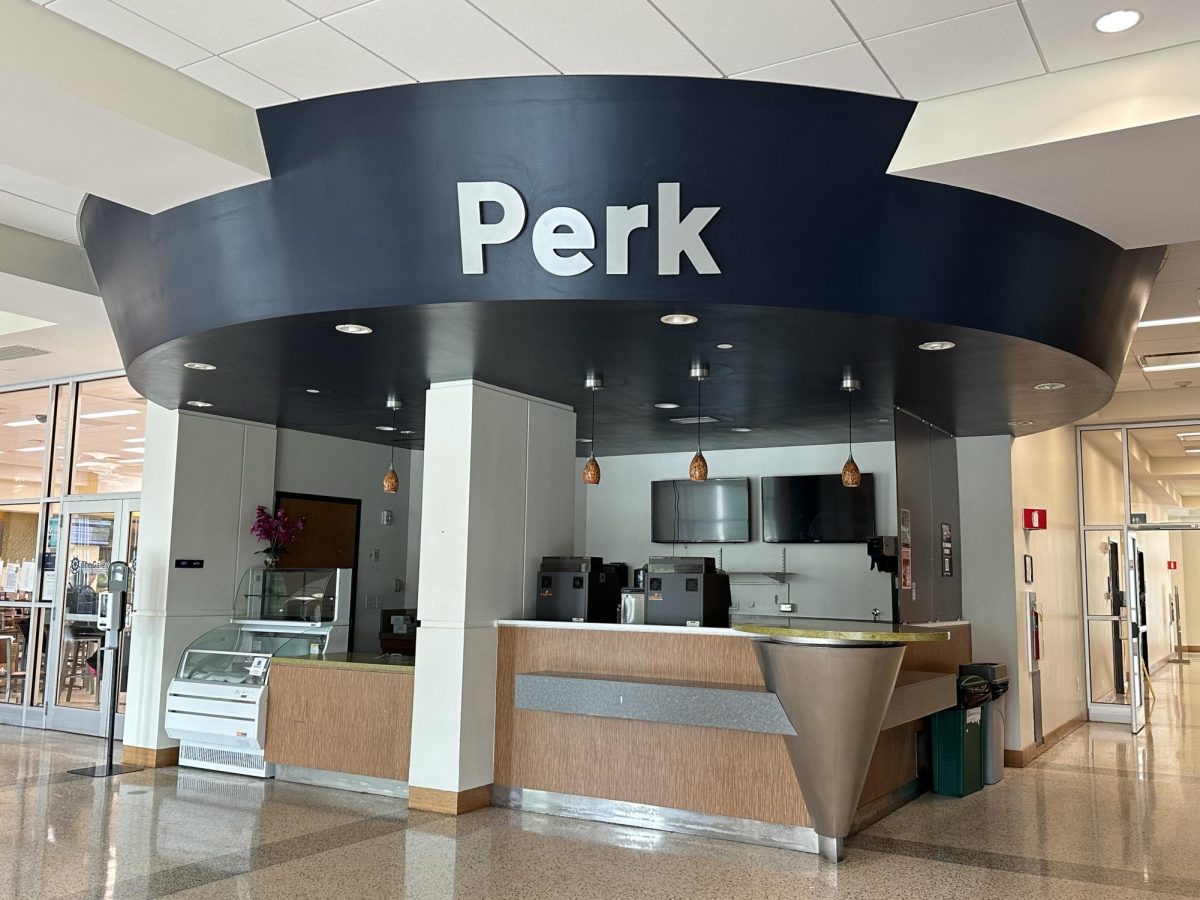Jason Chapman, Staff Writer
Beat the Blame Game, an event hosted by Health Services was held in the Ogeechee Theater on Oct. 10. The event focused on the problem of victim blaming or the act of blaming the victim for a crime or any wrongful act that happens to them.
Beat the Blame Game focused heavily on the act of victim blaming specifically in sexual assault cases. The presenter Anthony Dinicola covered many issues and aspects attached to the act of victim blaming. Dinicola was a lively and well-informed moderator, and he brought the crowd of young college students in to participate often.
Many students in the crowd participated and also seemed to already be informed to what the subject of victim blaming is. Students came to Dinicola with answers as to why people victim blame. Building upon the topic of why people victim blame Dinicola said, “We know from research there’s two major reasons and y’all hit on exactly the two reasons why people victim blame, the first one’s this idea of hindsight bias.”
Hindsight bias refers to people realizing the outcome of a certain chain of events and then they go back and try to find those links (or details) in the chain. They try to inspect every molecule that goes into that chain even when they don’t see the actual chain.
In this case, the outcome is rape and murder. Bystanders hearing about horrific events on the news or in social circles will begin to form their own theories about why things happened a certain way. They might say, “Oh well, she shouldn’t have been wearing those clothes, or he shouldn’t have been in that part of town late at night.”
Dinicola likens this phenomenon to horror movies. Many people love horror movies, especially during the Halloween season. When watching a character running in the woods from a masked killer with a trademark weapon in their hands, that will ultimately lead to the character that is running away’s untimely demise, we are glued to the screen ready for what happens next.
What often happens next is that the character trips on a root and falls face first into the ground. The audience immediately recognizes what has happened. The character made a fatal mistake by tripping on something they didn’t know was there.
The audience erupts. Reacting by wondering why in the world did that character just trip? Horrifically this is what can happen when someone is reported dead, missing or has been a victim of sexual assault. Why did they trip? They shouldn’t have done that.
The infinitely better question is why was there a masked killer chasing people around in the woods looking to hurt them? How can this be stopped? This line of thinking refers back to the abstract idea of identifying proper links in the chain of events.
Dinicola goes on to explain the “just world fallacy” which is the idea that people need to believe one will get what one deserves so strongly that they will rationalize an inexplicable injustice by naming things the victim might have done to deserve it.
“That leads to the second reason we know why people victim blame, that is the just world theory… from a very early age, no one wants these bad things to happen so they start to point at and they start to criticize to attack the person who is victimized,” Dinicola said. People begin to attack the character of the victim.
When the blame for the rape and murder of another living being is projected at any point onto the victim, that is unjust. The cultural tendency to victim blame is one of many reasons people living with past traumas don’t come forward to accuse the offender.
According to the Rape, Abuse & Incest National Network (RAINN), acts of sexual assault or violence have been cut in half since 1993. One out of six American women have been victims of rape. One out of 33 men have been assaulted or raped in their lifetime. The majority of sexual assaults happen near the victim’s home.
The statistics in this article aren’t intended to scare or drive fear. They are merely facts highlighted so that more people can recognize how often it is occurring. The world isn’t always a just place, and, in hindsight, people can never truly know what happened in any situation. All that people can do is try to prevent it, raise awareness and inform the public on the actual horrors of it.
If you or someone you know has been a victim of sexual assault, please contact RAINN’s National Sexual Assault Hotline 24 hours a day at 1-800-656-4673.








